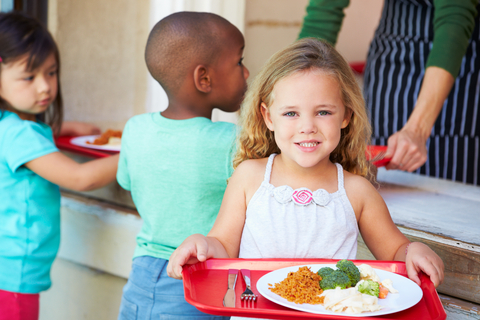The holiday season brings plenty of festive meals and treats, but for kids with food allergies, navigating holiday gatherings can be challenging. With hidden ingredients and potential cross-contact, it’s essential to plan for safe holiday eating. Here are some practical tips to help children with food allergies enjoy the season’s celebrations without worry.
1. Communicate with Hosts Ahead of Time
If you’re attending a holiday gathering, discussing your child’s food allergies with the host beforehand can help everyone prepare:
- Discuss Ingredients and Menu: Ask about planned dishes, ingredients, and any allergens that may be present.
- Offer to Bring Allergy-Friendly Dishes: Bringing safe options ensures your child has something to eat, even if other foods aren’t suitable.
- Suggest Simple Modifications: If possible, suggest allergy-friendly substitutes in shared dishes, like using dairy-free milk or gluten-free flour.
Clear communication makes it easier for hosts to accommodate your child’s needs and creates a more inclusive dining experience.
2. Prepare Allergy-Safe Snacks and Treats
Having allergy-safe snacks on hand can prevent issues if your child can’t eat what’s offered:
- Bring Favorite Allergy-Safe Treats: Pack a few treats that your child enjoys, so they don’t feel left out during dessert.
- Make a Safe Plate: At potlucks or buffets, create a plate with allergy-safe foods right at the start to avoid cross-contact.
- Pack Portable Snacks: Have a stash of safe snacks, like fruit or allergy-friendly granola bars, for longer gatherings.
Providing familiar, safe snacks helps ensure your child doesn’t miss out on holiday treats.
3. Educate Your Child About Safe Eating
If your child is old enough, teaching them about safe eating practices empowers them to make good choices:
- Identify “Safe” Foods: Teach them how to recognize safe foods and avoid high-risk items that may contain allergens.
- Practice Asking Questions: Encourage them to ask an adult if they’re unsure about a food item.
- Emphasize No Sharing: Remind them not to share food with others, as it may contain hidden allergens.
Educating your child about safe eating gives them confidence to enjoy holiday gatherings safely.
4. Use Safe Serving Practices to Prevent Cross-Contact
Cross-contact occurs when allergens from one dish come into contact with another, so it’s essential to take steps to prevent this:
- Serve Allergy-Friendly Foods First: Place allergen-free dishes at the start of the buffet to minimize cross-contact.
- Use Separate Utensils: Make sure serving spoons and forks are designated for specific dishes to avoid mixing allergens.
- Create a “Safe Zone”: Designate a part of the table for allergen-free foods that are safe for your child.
Being mindful of cross-contact can help make holiday gatherings safer for kids with allergies.
5. Focus on Simple, Whole Foods
Simple dishes with fewer ingredients can often be safer choices for children with food allergies:
- Opt for Plain Fruits and Vegetables: Raw fruits and veggies are generally safe and can be served without added ingredients.
- Choose Basic Proteins: Plain roasted meats or fish without sauces or breading are typically less risky.
- Stick to Basic Grains: Rice, potatoes, or plain pasta can be safe options when prepared without added butter, cheese, or seasonings.
These straightforward choices can provide safe and nourishing options without the risk of hidden allergens.
6. Create a Holiday Tradition with Allergy-Friendly Recipes
Incorporating allergy-friendly recipes into holiday traditions can make celebrations feel more inclusive:
- Try Allergy-Safe Versions of Holiday Favorites: Many traditional recipes, like cookies or stuffing, can be made with allergy-friendly substitutes.
- Make a Special Family Dish: Prepare a favorite dish that’s safe for your child and include it in your holiday meal each year.
- Include Kids in Cooking: Involving children in making allergy-safe dishes helps them feel included and excited about their meals.
Building holiday traditions around safe recipes ensures everyone feels included and can fully participate.
7. Have an Emergency Plan Ready
Even with careful planning, it’s essential to be prepared in case of an allergic reaction:
- Keep Emergency Medication on Hand: Always bring your child’s epinephrine auto-injector and any other necessary medications.
- Review Symptoms of an Allergic Reaction: Make sure all caregivers know the signs of an allergic reaction and how to respond.
- Know the Nearest Medical Facilities: If you’re traveling, familiarize yourself with nearby medical services, just in case.
An emergency plan provides peace of mind and ensures quick action if an allergic reaction occurs.
Final Thoughts
With thoughtful preparation, children with food allergies can enjoy the holiday season safely. By discussing allergies with hosts, bringing safe snacks, educating your child, and focusing on allergen-free foods, you can help them enjoy festive gatherings without the stress. With these simple steps, holiday celebrations become enjoyable, inclusive, and safe for everyone, allowing families to focus on the joy of the season.

